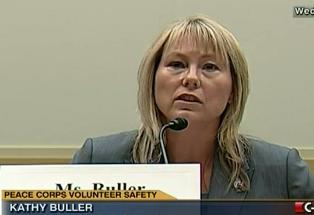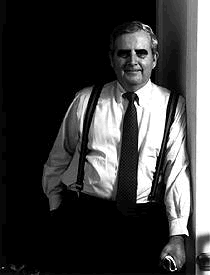Who Is Kathy Ann Buller And What Does She Want?
In her testimony on Tuesday of last week in a hearing on the Office of Office of Inspector General (OIG), 60-year old, Kathy A. Buller, the Peace Corps IG, said the agency [Peace Corps] continues to hamper her duties by invoking another law to inappropriately overrule her legal mandate.
After her testimony in September, the Peace Corps did grant her office greater access to information, but she said that was only after “two years of discussions with the agency and members of Congress, two congressional hearings, negative press coverage, a hold being placed on the nomination of the Director, and, ultimately, the signing of a memorandum of understanding (MOU) between the agency and OIG [Office of Inspector General].”
“Much work remains to be done to undo the damage caused by these access-denying policies,” she added It is ironic that Buller and the Peace Corps are the “point example” for misdeeds as singled out by The Washington Post columnist, Joe Davidson.
A brief history of the Office of Inspectors General show that the IG office goes back to President George Washington who relied on an aide, Baron von Steuben, to serve as the first Inspector General for the Continental Army in the 1700’s. Throughout U.S. history it was a military office, then the late ’60 and early ’70s Congress saw a need to “broaden its notion of what Inspectors General could do and how their expertise could help to focus on the activities of civilian agencies.”
Hello? The Peace Corps was already doing so–since 1961–without Congressional Oversight. 
Sarge Shriver, determined to keep the Peace Corps on its toes, set up in 1961 an Evaluation Division inside the agency and made Charlie Peters its first Director. His job, according to Peters, “was to take an independent, no axe-to-grind look at all aspects of the Peace Corps.” In doing so, the Peace Corps, in many ways, created the job Kathy Ann Buller has today.
Charlie Peters was in the first wave of employees at the Peace Corps who set the standards for civilian agencies we have today. Certainly, what Kathy Ann Buller does, the agency has been doing for 54 years. You can find out what that is by viewing what the Peace Corps PR office had put on line to promote her and the IG office. It is at: (https://www.youtube.com/watch?v=V-9-uZq6eFA ).
(Perhaps looking for her next job, Kathy Ann is already promoting herself on Linkedin: https://www.linkedin.com/pub/kathy-buller/2a/b55/b1b)
(I should confess early in his blog that I have a ‘weakness’ for women named ‘Kathy Ann’ as my college sweetheart, also at a midwest Jesuit college, was named Kathy Ann. However, my ‘Kathy Ann’ left me for the convent! And I for the Peace Corps.)
Having been educated deep in the heart of America, (at a good Jesuit college) and coming from Nebraska, this Kathy Ann appears to have limited living experience outside of America, and limited understanding of other worlds and cultures. It is not her fault. It is just unfortunate that she is at the Peace Corps in her current bureaucratic position as IG. She is not unlike other Schedule-C appointments (political appointments) who are desperate to work at the Peace Corps (not that they ever want to be Volunteers) because it look great on their Linkedin CVs.
The first head of Evaluation, Charlie Peters, was also a political appointment, nor was he an RPCV (there were none) but he was someone of substance when he was appointed by Shriver.
Charlie Peters was born and raised in Charleston, West Virginia. Enlisting in the Army in 1944, and after the war, enrolled at Columbia University and earned his B.A. and M.A in English, then a law degree in 1957. He took a job in his father’s law firm in Charleston and by 1960 was elected to the West Virginia House of Representatives. Here he would draft and sponsor the state’s first civil service law.
On March 1, 1961 the Peace Corps became an agency and by April, 1961, Charlie went to work as a consultant to the General Counsel. It was Peters who negotiated with the government of Puerto Rico for the establishment of Camp Crozier at Rio Abajo. He then went as the agency’s first Evaluator to the Philippines, St. Lucia, Ghana, Nigeria, Pakistan, Thailand and Malaya.
When he came home Shriver appointed him Chief of the new Evaluation Division. Peters dispatched Evaluators all over the Peace Corps world and urged them to cast a cold eye on the work of the Volunteers. He wanted to know what was good, but more importantly, what was weak or inefficient. “As an evaluator,” Peters wrote, “you have a duty to raise hell.”
To guard against government bureaucrats, Shriver and Peters, writes Gerard T. Rice in his book, The Bold Experiment “hired people who had no government ties-journalists, academics, social scientists-to perform evaluations. The hypercritical style and sweeping extent of this process was otherwise unknown in the federal government.”
These experienced men and women Evaluators cared little for bureaucratic sensitivities or political opinions. They judged performance by the highest standards and where scathing of even the slightest incompetence.
By 1963, Shriver and Peters had hit upon the idea of hiring returning Volunteers as Evaluators. Rice writes, “they [RPCVs] especially relished the opportunity to criticize their former bosses.” Among the first RPCV Evaluators were Maureen Carroll (Philippines 1961-63) and Dick Lipez (Ethiopia 1962-64).
Peters would leave the agency after six years and go onto start The Washington Monthly, and is today considered one of our nation’s leading crusading journalists.
Rice sums up Charlie Peters career at the Peace Corps by writing that “no staff member came to be more respected by his peers than Charles Peters. He was bright, irreverent, and far-seeing. On every subject, from Volunteers’ sexual behavior to possible political scandal, Peters provided the Peace Corps hierarchy with sound advice and gave warning of potential disasters.”
Yes, Charlie Peters reported to Sargent Shriver, the Director, but in his heart he worked for the Peace Corps.
Today, senior citizen Kathy Buller reports to the Peace Corps Director. But I am not sure who she works for. Her promotional material on the Internet, as well as her statements to Congressional Hearings, suggests she just wants to make a name for herself.
(Not that ‘Kathy Ann’ is a bad name.)
Thanks John, hope this Kathy Ann reads your piece. Interesting, the I took it upon to eliminate themselves from Shriver ‘ s five rule…but then the USAID hired attorneys at Peace Corps are also exempt from the five year rule…I hope I am wrong.
Kathy Ann needs to remember..The Volunteers and Peace Corps are first…not Schedule C’s!
Bob,
Peace Corps is subject to the law of the land. The law in question is the Kate Puzey Peace Corps Volunteer Protection Act of 2011. That law mandates certain protections for Peace Corps Volunteers and specifically for those who are victims of sexual assault. The Inspector General is charged, by law, to ensure that Peace Corps follows this law.
There is a legal dispute between the Peace Corps and the Office of Inspector General over what personal information of PCV victims of sexual assault should be released to the OIG.
The Peace Corps contends, as I understand it, that some personal information of the victims is confidential and can not be turned over to the OIG. The IG contends, again as I understand it, that without such personal information, there is no way to ensure that the law is being followed.
The OIG also does project and country evaluations. I certainly agree that there are better, more objective ways to accomplish such analysis. However, the current dispute involves the law.
The five year rule is not relevant. I don’t understand why the USAID is hiring attorneys for Peace Corps. What is that all about?